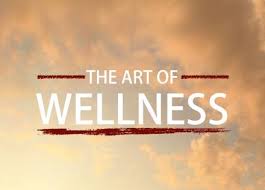
When we think of art, we think of creative pursuits like writing, painting, or pottery. We seldom see cultivating a persistent sense of wellbeing as an art form. Yet, when you think about it, living well is as artistic, creative, and engaging as any other form of art.
This is especially true in retirement. Our bodies are aging, our careers are over, and our lives can easily start to feel empty and unfulfilled. To rise above all of that and achieve a true sense of wellbeing into old age is a remarkable feat.
Still, how do you even start your path to wellness in retirement?
Although everyone has their own interpretation of wellness, there are some common threads you can pull upon to craft your own wellness enhancement project:
Maintain Your Health
Here are 4 suggestions on how to maintain your health:
-
Get health insurance or improve your health insurance options.
If you don’t have any serious health problems—such as heart disease, chronic obstructive pulmonary disease, human immunodeficiency virus, cancer, diabetes, substance abuse, and so on — consider getting non ACA health insurance, which is health insurance for people with no major pre-existing health condition. Similarly, those on Medicare should carefully examine their options. Depending on your specific situation, a Medicare Advantage Plan might be necessary.
-
Practice preventative medicine
Although there are many common misconceptions about naturopathic medicine, it’s worth looking into this form of natural medicine as a way to become more conscious of your health. Naturopathic practices support your body’s natural capacity to stay healthy by maintaining a balanced lifestyle. Explore this idea or other formal preventative medical disciplines to learn how to prevent illnesses from occurring.
-
Exercise regularly
Because nature designed the human body for movement, you undermine your health if you’re sedentary most of the day. This is especially true for those entering old age.
- Get up every thirty minutes or every hour to walk around.
- If you have an activity you like, figure out how to do it more often or do it better.
- If you don’t exercise at all, explore various ways to create a routine that increases your flexibility, endurance, and strength. This could be a single activity, or it could be a series of activities.
When it comes to exercise, find routines and exercises that you enjoy rather than trying to force yourself to exercise because you know it’s good for you. You’ll replace will-power with want-power. Most senior communities offer many active options. Try them until the find the one that you enjoy.
-
Unwind after a busy day
Rather than resort to common default de-pressurization techniques after a hectic day–like social media surfing, engaging in random telephone calls or texting, staring at the television, or scrolling through YouTube feeds–consider expanding your repertoire.
For instance:
- Arrange regular therapeutic massages to relieve knotted muscles.
- Meditate to explore the deeper reaches of your consciousness.
- Enroll in a recreational class to learn flowing movements like Qigong or tai chi.
- Go for long walks in nature. Observing the expansive blue sky, the intricacies of bushes and trees, and the ripples on a lake have a curious way of calming your nerves and restoring your mental acuity.
Get Into Flow States
Although humans have enjoyed flow states since the time they wandered across the savanna, it took a keen observer of human nature like Mihály Csíkszentmihályi to give it a name and a description.
A flow state is any activity that fully engages our attention. When we do it, our sense of self disappears, and we become engrossed in a challenging and stimulating project. For example, surgeons go into a flow state when operating on a patient. Chess players fall into one when playing in a tournament. Writers slip into one when writing an imaginary scenario.
What things put you in a flow state? Passive activities like watching television don’t count. It has to be something that is difficult enough to be stimulating but not so difficult that it’s exasperating.
Wellness is the art of becoming more aware of your unfolding experiences. Think of it as a way you can recover moments or happy accidents. Maintaining your health and discovering activities that trigger flow states are two portals to a happier, healthier, and more harmonious life in retirement.